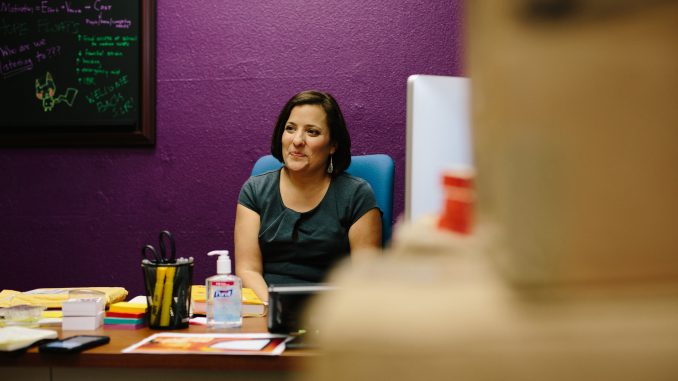
Members of a town hall panel described student living standards as a “national crisis” during a discussion on debt, finances and food insecurity in the Temple Performing Arts Center on Wednesday.
Michael Luna, Student Government Association president at the Community College of Philadelphia, said he had to take out a student loan to avoid becoming homeless.
“It’s just a symptom of so many bigger issues in our community,” Luna said.
Panel members like Luna, Sara Goldrick-Rab, a Temple University professor and founding director of The Hope Center, and City Councilwoman At-large Helen Gym identified issues with the higher education financing system and food insecurity. The town hall had about 60 attendees.
The other panelists included Seth Frotman, director of the Student Borrower Protection Center, and Jeff Hornstein, executive director of the Economy League of Greater Philadelphia.
“While we talk about tuition a lot, a lot of our debt comes from non-living expenses, including books, and supplies,” Goldrick-Rab said during the discussion. “All of the prices of those are going up across the city and the country.”
“It has been harder to access food stamps. Work doesn’t pay, at least the way it should,” she added. “Because of these challenges we now have homeless and hungry college students in this city.”
The four panelists suggested reforms that might address students’ financial problems, like making community college tuition-free, creating affordable student housing and general debt relief paid for by taxpayers in higher income brackets.
Samaria Aluko, a first-year epidemiology master’s student, attended the town hall and said it was helpful because Aluko is going to medical school.
“I want to look at ways to get rid of debt,” Aluko said. “We need to be active and speak out. Our personal stories can tell more than [academic studies].”
The panel stressed to the audience that students should get involved with activism surrounding student debt, adding it should be an issue of focus for the 2020 presidential election. Gym said city government could also begin to address the issue.
“If we wait for Congress and the state we will be waiting forever,” Gym said. “This is years and decades in the making.”
Malcolm Kenyatta, the state representative for the 181st district and a 2012 public communication alumnus, who was expected to speak on Wednesday’s panel, did not appear.
Gym pointed out that Pennsylvania’s students graduate with the second-highest debt in the country.
“For-profit colleges are taking people’s money,” Gym said. “They are doing so more and more aggressively…Right now, Philly is open for business in this regard and it’s really scary. Students at for-profit schools are defaulting at double the rate.”
In addition to student debt, the town hall focused briefly on the issue of food insecurity, which was amplified nationally last week through a Congressional report that included Goldrick-Rab’s research on student food insecurity.
She said colleges need to promote a culture that encourages students experiencing food insecurity to use federal benefits, like food stamps.
Budget cuts, a lack of staff in key areas and structural problems with college financing have left colleges unprepared to give students the resources to mitigate debt and fund their meals and housing, Goldrick-Rab said.
Luna said he was cut off from receiving food stamps when he made more than $14,000, and added that “food deserts,” or neighborhoods with very few accessible grocery stores, also contribute to student food insecurity.



Be the first to comment